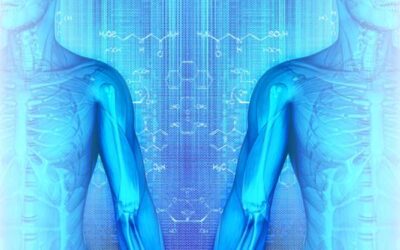Understanding Neuropathy: Questions to Ask Your Neuropathy Doctor
Over 20 million Americans suffer from some form of peripheral neuropathy.
Neuropathy causes discomfort and weakness in your extremities. Damaged peripheral nerves send interrupted messages to your brain that results in pain. Common neuropathy causes include diabetes, injuries, alcoholism, and infection.
Do you have neuropathy questions? If so, keep reading. Our expert neuropathy doctor has created a go-to guide for frequently asked neuropathy questions.
Why Is Neuropathy Worse at Night?
Medical professionals believe neuropathy symptoms may have something to do with temperature changes during the night. Bodily temperatures fluctuate as we sleep. The same nerves that signal temperature changes also send pain signals.
Damaged nerves may translate fluctuating temperatures to tingling, sharp, or burning pain. The cool temperatures also slow your heart rate, leading to reduced blood flow.
Poor sleep quality may also play a role in neuropathy symptoms. Less sleep leads to increased pain perception and irritability.
Does Peripheral Neuropathy Get Worse in Cold Weather?
Neuropathy can get worse in colder climates. Cold temperatures decrease blood flow. As circulation decreases, nerve pain (especially in the hands and feet) increases.
Patients living with neuropathy should take precautions to bundle up when the seasons change. Light cardio can warm up muscles and promote circulation. Patients should avoid caffeine, as it can restrict blood flow.
Does Neuropathy Get Worse Over Time?
While neuropathy treatments can alleviate symptoms, there is no known cure for peripheral neuropathy.
If left untreated, neuropathy will worsen. Damaged nerves will send irregular messages to the brain more frequently, leading to constant numbness and burning sensations. Over time, the spinal cord may get so used to the pain signals that it starts to send them on its own.
Seeking immediate neuropathy treatment is the key to slowing down nerve signals and preventing severe pain.
What Foods Make Neuropathy Worse?
If you’re living with neuropathy, avoid starchy foods that are high in gluten. Research has shown a gluten-free diet may protect against nerve pain.
Incorporate gluten-free alternatives into your meals. Steer clear of pasta, bread, and pizzas.
Neuropathy patients should also avoid sugary, salty, and processed foods. This includes:
- Potato chips
- Cold cuts
- Candy
- Soft drinks and fruit juices
- Fast food
Instead, focus on maintaining a nutritious and wholesome lifestyle. Foods rich in anti-inflammatories and vitamin B12 are ideal. Whole grains, lean meats, nuts, fish, and veggies can decrease neuropathy symptoms.
Natural Ways to Alleviate Neuropathy Symptoms?
Chiropractic, physical therapy, surgery, and injections can treat peripheral neuropathy. However, patients can make healthy lifestyle changes to naturally decrease their symptoms.
First things first, quit smoking and reduce alcohol intake. Smoking decreases blood circulation and increases discomfort. Alcohol causes inflammation and stress, which can trigger nerve pain.
In some cases, neuropathy is related to vitamin deficiencies. Increasing your vitamins B and D intake can ease the condition’s symptoms. Vitamin B boosts nerve health, while vitamin D lessens nerve pain.
Incorporate cayenne pepper into your diet. The pepper naturally lowers the intensity of pain signals, which is why it’s a common ingredient in topical creams.
Take warm baths to prevent discomfort. The warm water boosts circulation and lowers pain symptoms.
Meditation lowers stress and improves sleep quality. It allows those living with neuropathy to feel as if they have some control over their bodies.
Are You Looking for a Neuropathy Doctor?
Neuropathy is a chronic pain disorder that can hinder your quality of life. Fortunately, a professional neuropathy doctor can help.
Request an appointment to learn more about how we treat peripheral neuropathy. Our medical professionals use a variety of treatment methods to decrease pain and heal your body.




